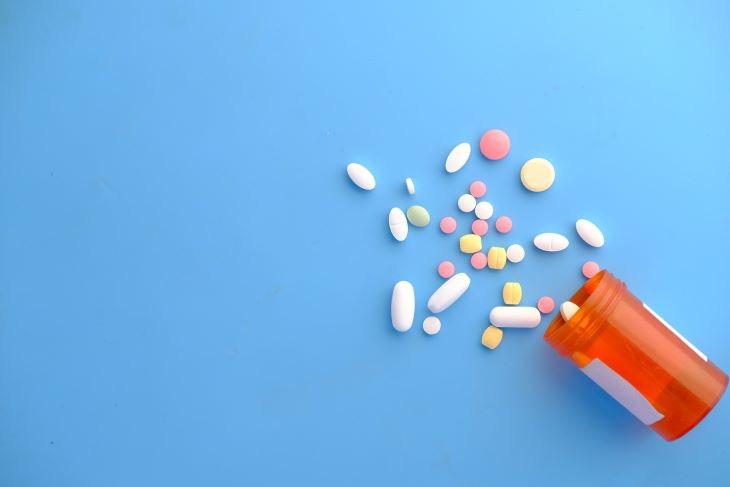Drug & Alcohol Rehab in Woolwich
Situated in the borough of Greenwich on the banks of the Thames, Woolwich is an affluent area that experiences high rates of substance addiction. The high-paced capital city is often described as the locus of Britain’s addiction problem, with rates of alcohol use disorders and cocaine dependency rising each year.
Data outlining drug deaths by local authorities [1] has revealed worrying rates of drug poisoning in the Woolwich area, with figures covering dependence, suicides, fatal accidents, and complications involving the use of prescription medication.
In 2021,16 deaths related to drug poisoning were recorded in Greenwich, equating to a mortality rate of 5.3 deaths per 100,000 people.
Though these figures represent an unmeasurable tragedy, drug poisoning is only one part of the community-wide problems faced by UK residents.
Substance-related hospital admissions have been a serious issue for years, with one NHS statistical report [2] confirming that in 2020, UK hospitals recorded 7,027 instances of drug-related mental and behavioural disorders.
Despite this, many addicted individuals access the help they need at a drug and alcohol rehab in Woolwich.
As of 2021, there were 480 individuals undergoing treatment for opiate use disorders [3], and a further 245 people in recovery programmes designed for alcohol addiction.
What is Drug and Alcohol Addiction?

Starting with repeated exposure to addictive substances, Substance Use Disorder (SUD) is a chronic disorder of the brain’s reward system [4].
While many people think addicted individuals have free will over their actions, this is far from the case. SUD involves complex interactions between different social, genetic, and environmental elements.
While the disease model of addiction has had many revisions over the years, its definition is now mostly agreed upon by experts.
Long-term substance use alters the brain’s function and structure by periodically flooding it with dopamine: causing it to adapt and need more and more of said substance.
Therefore, not only has the brain adjusted to the higher pleasure hormone levels, but it also relies on drugs or alcohol to produce dopamine. This process is known as increasing tolerance.
Addicted individuals will no longer be taking a drug to feel high, they’ll be taking it so as not to feel low.
A growing tolerance often means that physical, psychological, and social consequences will grow more serious. However, an individual in the throes of SUD will be unable to quit without the assistance of drug and alcohol rehab in Woolwich.
Symptoms of Drug and Alcohol Addiction

Once an addicted individual realises the pain and suffering that their condition is causing them, they may try to cease drinking or using.
Unfortunately, willpower isn’t enough to see an individual through the discomfort of withdrawal, which rarely subsides without attending a drug and alcohol rehab in Woolwich: particularly in the form of medicated detox [5].
The kind of side effects experienced depends on the type of substance an individual uses and the dosage their body is used to.
For example, heroin withdrawal may feel like protracting the flu, while alcohol withdrawal can lead to seizures and Delerium Tremens. More generalised physical symptoms include sweating, nausea, tremors, headaches, and fatigue.
Like physical symptoms, psychological withdrawal can range from mild to severe, and will often co-occur alongside bodily discomfort.
While substances such as cannabis are more prone to inflicting mental side effects, psychological discomfort can occur with any substance addiction. Common symptoms include restlessness, sleep disruption, anxiety, and mood swings.
Admissions Process into a Drug and Alcohol Rehab in Woolwich

Because treatment at a drug and alcohol rehab in Woolwich is designed to be comprehensive and long-term, the admissions process involves many crucial steps.
With this in mind, the Rehab Recovery team have curated a simplified, personalised referral procedure to help you access the correct treatment.
We have an expert admissions team on standby waiting for your call, which you can access by dialling 0800 088 66 86 [6].
They’ll handle your unique case with a mix of compassion and practicality: answering any questions you might have about rehab clinics, treatment styles, payment, and facilities.
To provide you with the most personalised advice possible, whoever you speak to in this initial chat will book you in for a pre-admissions evaluation with an addiction specialist.
During this swift consultation, you should be prepared to answer questions about your health, emotional well-being, and substance use history and methods.
Providing this information is an essential part of forming your bespoke referral to a drug and alcohol rehab in Woolwich.
This allows our consultants to consider the best treatment programme, including detox, therapy, and relapse prevention planning, for your unique recovery journey.
Treatment for Co-Occurring Disorders in Rehab

Over half of the individuals entering treatment at a drug and alcohol rehab in Woolwich or elsewhere are battling co-occurring disorders.
This means that they are going through two conditions simultaneously, which in this case refers to SUD and a mental health illness.
Conditions such as anxiety and depression often co-occur with alcohol addiction, for example, but there are numerous amalgamations.
Due to the complexity of dual diagnoses, undertaking treatment as an outpatient can do more harm than good. This type of programme makes patients more susceptible to encountering relapse triggers at home and is less likely to have a personalised approach.
However, at a residential drug and alcohol rehab [7] in Woolwich, patients with comorbid disorders can receive the complex approach needed to tackle both conditions at once.
Programmes for co-occurring disorders include a comprehensive psychological screening, from which a plan consisting of multiple therapeutic techniques can be built.
Medicated Detox at a Drug and Alcohol Rehab in Woolwich

Safely transitioning from a state of intoxication to sobriety is considered the solid foundation of any recovery journey.
At a drug and alcohol rehab in Woolwich, patients must cleanse their bodies of toxins, which in this case is drugs and/or alcohol, whilst under medical supervision to avoid withdrawal symptoms [8].
As the building blocks for future treatment, detoxification must be thoroughly planned and customised.
New patients receive a medical exam that allows their caseworkers to identify important information: such as substance use history, frequency and quantity, alongside their state of mental well-being.
From here, medical professionals can decide on a bespoke detox protocol and whether Medication Assisted Therapy (MAT) is necessary to ease withdrawal.
For around 7 days depending on their severity, patients will work their way through a unique tapering schedule that allows them to avoid the worst adverse symptoms.
Medical staff will provide constant supervision and may administer medications to help you with your symptoms.
These might include anti-seizure medication, anti-nausea medication, sedatives such as benzodiazepines, muscle relaxants, and vitamin supplements to help you stabilise.
Therapeutic Treatment at a Drug and Alcohol Rehab in Woolwich

While crucial, a medically supervised detox doesn’t represent an entire addiction treatment programme. Rather, it is the initial step in a much longer journey towards long-term sobriety.
At a drug and alcohol rehab in Woolwich, patients will undergo both alternative and psychotherapeutic methods [9], some of which include the following:
- Cognitive Behavioural Therapy [10] (CBT): Since the late 20th century, CBT has become a popular way to treat various mental illnesses, from bipolar disorder, depression and anxiety to substance addiction. Combining elements of cognitive and behavioural therapies, the purpose of CBT is to help people understand which thought processes and core beliefs are worsening their SUD. Once they’ve reached they can craft healthier coping methods and relapse prevention techniques.
- Dialectical Behavioural Therapy [11] (DBT): The creators of DBT took the core principles of CBT and adapted them to produce a therapeutic method to suit patients with intense emotional needs. At a drug and alcohol rehab in Woolwich, DBT participants learn about the complexities of emotional regulation and stress management through a variety of techniques. These include mindfulness,, meditation, and holistic problem-solving.
- Holistic Therapy [12] (HT): This form of therapy relies not on psychotherapeutic techniques, but on patients discovering physical and mental wellness through a range of healthy activities. HT programmes incorporate pursuits such as adventure therapy, art therapy, yoga, meditation, equine therapy, gardening, cooking, and so on. By undertaking these non-medicinal recovery methods, patients can restore the nutritional, emotional, and physical imbalances caused by SUD.
- Family Therapy [13] (FT): From enabling behaviours to recurring arguments, the way a family unit operates can be incredibly supportive or impede a person’s recovery. To optimise patients’ recuperation, FT is frequently implemented at a drug and alcohol rehab in Woolwich. Sessions educate loved ones on addiction treatment procedures and help family groups communicate their emotional needs.
- Group Therapy: Therapies held in group settings provide a space for patients to share their recovery experiences with people on the same trajectory. Sessions in rehab are run by an on-site mental health provider with experience in helping people communicate effectively. By gaining insight into the experiences of others, patients can make lasting bonds and prevent social isolation.
- Acceptance and Commitment Therapy [14] (ACT): People who are trying to avoid negative thoughts or feelings are more likely to consume drugs or alcohol in an attempt to regain control. It’s this phenomenon that ACT aims to combat by teaching patients how to accept their inner demons while developing better ways to cope with them. Regular ACT sessions at a drug and alcohol rehab in Woolwich help participants manage their emotions and develop a deeper understanding of their sense of self.
Aftercare at a Drug and Alcohol Rehab in Woolwich
While relapses can happen to the most stable recovering individuals, having an effective aftercare plan put into place when you leave rehab can help prevent them.
As such, those graduating from their treatment programmes at a drug and alcohol rehab in Woolwich receive bespoke aftercare for 12 months, at no further cost.
Based on their needs following rehab, former patients may be offered intensive outpatient support, individual therapy, or 12-Step Facilitation, with regular evaluations from their designated healthcare professional.
Regardless of how their aftercare is structured, most individuals in recovery are given access to local 12-Step communities where they can continue connecting with local people undertaking the same journey towards sobriety.
Popular examples include Narcotics Anonymous [15], Alcoholics Anonymous [16], and SMART Recovery [17].
References
[1] Deaths related to drug poisoning by local authority, England and Wales https://www.ons.gov.uk/peoplepopulationandcommunity/birthsdeathsandmarriages/deaths/datasets/drugmisusedeathsbylocalauthority
[2] NHS Statistics on Drugs Misuse, England 2020 https://digital.nhs.uk/data-and-information/publications/statistical/statistics-on-drug-misuse/2020
[3] National Drug Treatment Monitoring System (NDTMS), Adult Profiles, Woolwich https://www.ndtms.net/ViewIt/Adult
[4] The Brain Disease Model of Addiction https://www.hazeldenbettyford.org/education/bcr/addiction-research/brain-disease-model-ru-316
[5] Principles of Drug Addiction Treatment: A Research-Based Guide (2nd Ed.) https://books.google.co.th/books?id=mtMdJ3qqSnQC&printsec=frontcover&dq=addiction+treatment&hl=en&sa=X&ved=2ahUKEwiDlMP3zob3AhXiwjgGHYJtDZ8Q6AF6BAgDEAI#v=onepage&q=outpatient&f=false
[6] Rehab Recovery: Help for Myself https://www.rehab-recovery.co.uk/addiction-help/myself/
[7] Rehab Recovery: Residential Addiction Treatment https://www.rehab-recovery.co.uk/addiction-treatments/residential/
[8] Rehab Recovery: Medications Used for Alcohol Detox https://www.rehab-recovery.co.uk/addiction-detox/alcohol-detox/medications-used/
[9] Therapeutic Alliance in Integrative Addictions, Focused Psychotherapy and Counselling https://www.google.co.uk/books/edition/Therapeutic_Alliance_in_Integrative_Addi/j4gkEAAAQBAJ?hl=en&gbpv=0
[10] Rehab Recovery: Cognitive Behavioural Therapy in Addiction Treatment https://www.rehab-recovery.co.uk/addiction-treatments/cognitive-behavioural-therapy/
[11] Dialectical Behavioural Therapy, Distinctive Features https://www.google.co.uk/books/edition/Dialectical_Behaviour_Therapy/dT4lDwAAQBAJ?hl=en&gbpv=0
[12] Rehab Recovery: Alternative & Holistic Therapies for Addiction https://www.rehab-recovery.co.uk/addiction-treatments/alternative-holistic/
[13] Rehab Recovery: Family Addiction Counselling https://www.rehab-recovery.co.uk/addiction-treatments/family-therapy/
[14] Acceptance and Commitment Therapy, 100 Key Points and Techniques https://www.google.co.uk/books/edition/Acceptance_and_Commitment_Therapy/8nGPDwAAQBAJ?hl=en&gbpv=0
[15] Rehab Recovery: What is Narcotics Anonymous? https://www.rehab-recovery.co.uk/addiction-treatments/narcotics-anonymous/
[16] Alcoholics Anonymous https://www.alcoholics-anonymous.org.uk/
[17] SMART Recovery, Life Beyond Addiction https://smartrecovery.org.uk/


